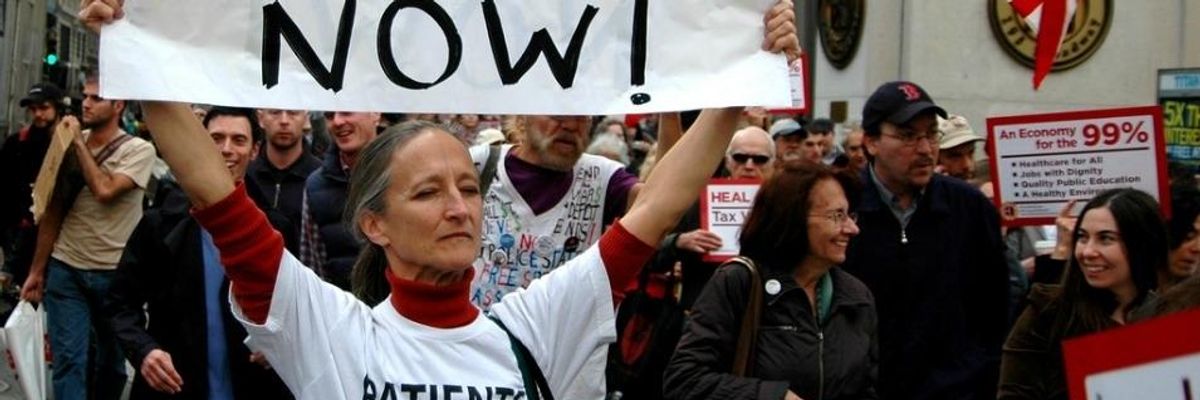For many supporters of universal healthcare, last week felt nauseating.
From local to national politics, the notion of health as a human right was barred from public policies. At the state level, ColoradoCare--a ballot initiative and universal coverage proposal--didn't reach a simple majority to ensure health access to all Coloradoans.
Then came California, where Proposition 61 aimed to curtail runaway pharmaceutical costs. But after Big Pharma poured $109 million to attack the measure (making Proposition 61 the most expensive ballot fight this year), it was defeated by a 54-46 margin.
The story was similarly bleak at the national level as Donald Trump's surprising win left millions of American uncertain about the future of their health care. Patients covered by the Affordable Care Act now questioned their future coverage. The prospect of a public option that Secretary Clinton adopted late in the campaign cycle was no more.
These headlines could easily be viewed as failures. It's important that we see them as opportunities.
In Colorado, supporters of ColoradoCare were outspent 4:1 by opposition parties and the ballot's language never mentioned the savings the Centennial state's populace would enjoy. While ColoradoCare wasn't quite single payer, organizers are undeterred by the uphill battle and have already begun planning next steps.
State senator and doctor, Irene Aguilar, said of the historic moment, "Win or lose, the issue of guaranteed access to healthcare for everyone without financial barriers was finally brought before the voters."
In California, Proposition 61 highlighted a year of tumult as patients saw pharmaceutical corporations price gouge life-saving medications. Earlier this year, Mylan tightened its monopoly-like grip on EpiPen with a 400% price spike, which followed the lead of other companies like Turning and Valeant Pharmaceuticals.
Had the proposition passed, California would have been able to negotiate drug prices, much like the Department of Veteran Affairs, which can negotiate down drug costs by an estimated 20%.
In a health system where Medicare cannot negotiate drug prices and pharmaceutical companies can hike prices overnight, the pressure is growing to rebuke Big Pharma's power. Proposition 61 may have lost, but the next ballot initiatives are already forming.
The recent elections were a whirlwind of uncertainty, but they also galvanized the movement toward a universal healthcare system like single payer. With 30 million Americans left uninsured and medical bills remaining the number one cause of bankruptcy, action today is more important than ever.
On November 18th, physicians, activists, and students gathered in Washington D.C. for the 2016 Physicians for a National Health Program Annual Meeting and Leadership Training. Here, doctors from across America organized to shape the future of health and health care, specifically, the movement toward a single payer health system.
For too long the titanic middlemen of American healthcare named Cigna and UnitedHealthcare (among other insurance corporations) have prioritized profits over patients. In this current system, patients and their physicians struggle to find affordable and accessible health care.
As the inequity of our health system remains, patients, students, and doctors have grown in numbers to rally around universal healthcare and single payer. While last week was tough, it's also over. Let this weekend and beyond be a re-ignition of progress.
And if you are in D.C. this weekend, you will see that progress in action.
The 2016 PNHP Annual Meeting and Leadership Training schedule can be found here.
